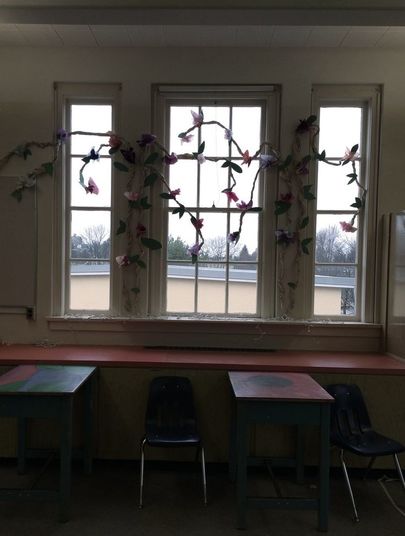 Our stage, made ready for A Midsummer Night's Dream in 2014. Our stage, made ready for A Midsummer Night's Dream in 2014. When I’m not editing my novel, I edit Shakespeare. I am well past the point where I find this to be horrifying. Here is why. I have read, watched, acted in, studied, and taught a great deal of Shakespeare. I might once have thought that Shakespeare’s plays had to be studied in their entirety, but early on in my teaching career, I made the choice that I would rather have my students read a slightly abridged version of Shakespeare, than no Shakespeare at all. In my grade six and seven class, my students perform and study Shakespeare in Drama every year. It started out as one play a year; through popular demand, it became two. Bringing Shakespeare alive means performing it. One of my privileges as an elementary school teacher is that I teach all subject areas. This means that when my students learn Shakespeare, they don’t just read his work, or listen to me talk about his world; they push back the desks and jump on the countertops and wield swords made of cardboard. And it works. They get it. Shakespeare may seem inaccessible to a twelve-year-old at first glance, but it’s full of drama, anger, love, mistakes, and people stabbing each other. It’s basically Young Adult fiction written in iambic pentameter. Performing the plays has required me to make certain decisions and modifications to the works that I use. At the moment, the three plays that I have edited are A Midsummer Night’s Dream, Richard III, and Julius Caesar. I know – Julius Caesar and Richard III seem like slightly odd choices, but aside from Drama, they also fit well into the grade six and seven Social Studies curriculum of Ancient Rome and the Middle Ages. More importantly, they and A Midsummer Night’s Dream share something in common: they all have last casts, and enough roles for all my students. Once I’ve selected the plays, I look at the existing language. I don’t change it into modern English; that would defeat the point of reading it. I simply shorten it. This is generally true of performed plays as well; generally, some form of editing has taken place, and this is for the most part a good idea. Hamlet in its full form in about a four-hour performance; the only person intense enough to do that is Kenneth Branagh, who of course did. For most performers and viewers, an approach like that taken by the producers of The Hollow Crown is more appropriate; they focused on the scenes that convey the themes they wished to highlight, and removed the rest. My final piece of editing involves me adding something instead of removing it. In tackling history plays like Julius Caesar, it became obvious that some background information was needed, and so I created Raj and Ky. Raj and Ky are time-travelling students, who travel in time to observe and comment on the events of the plays (for an excerpt of them as a Prologue to Richard III, see the block quote insert). It may seem a bit cheesy, but again, it works. With a little bit of information to start with, my students memorize and perform the plays, sympathize with the characters, and come to understand Shakespeare’s work from the inside out. Best of all, this access to Shakespeare stays not only with them, but with their friends and with the classes in the school who see the performances. Shakespeare is no longer something on a page; it’s something alive, powerful and relevant, an experience to be desired, and in some cases, demanded. On the first day back to school this year, one of my grade seven students, who had been in my class the previous year, walked into my room and said, “When do we start Shakespeare?” Right away. Ky: Let me check the date…. Oh.
3 Comments
Susan Jones
1/8/2017 09:45:26 pm
I love reading Blogs that are intelligently written. I wish I had a quote from Shakespeare to add emphasis to my delight but I will leave that to you! Your students are certainly very lucky to have you as their teacher!
Reply
Jane Perrella
1/8/2017 11:27:45 pm
Thank you as always for reading! Glad you enjoyed it.
Reply
Leave a Reply. |
Author
Jane Perrella. Teacher, writer. Expert knitter. Enthusiast of medieval swordplay, tea, Shakespeare, and Batman. Archives
June 2019
Categories |
 RSS Feed
RSS Feed
